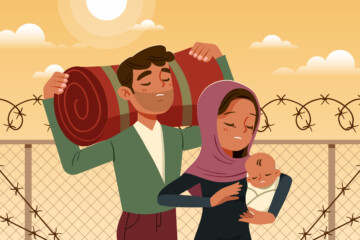In recent years, Islamophobia has emerged as a pressing societal issue, with far-reaching implications for individuals, communities, and nations worldwide. Defined as the irrational fear, prejudice, or hatred towards Islam and Muslims, Islamophobia manifests in various forms, ranging from discriminatory attitudes and behaviors to systemic oppression and violence. To combat this phenomenon effectively, it is imperative to delve into its roots, consequences, and potential solutions.
Origins and Manifestations
Islamophobia has deep historical roots, shaped by centuries of geopolitical conflicts, colonialism, and cultural misunderstandings. In the modern era, the events of 9/11 and subsequent terrorist attacks have exacerbated existing prejudices, associating Islam with violence and terrorism in the collective consciousness. Media portrayals often perpetuate negative stereotypes, painting Muslims as inherently backward, oppressive, or threatening.
Consequences
The impact of Islamophobia extends beyond mere prejudice, affecting individuals, communities, and societies on multiple levels. Muslims experience discrimination in employment, education, housing, and other facets of daily life. Hate crimes against Muslims, including physical assaults, vandalism, and mosque attacks, have surged in many parts of the world. Moreover, Islamophobia fosters a climate of fear and mistrust, eroding social cohesion and undermining efforts towards multiculturalism and integration.
Addressing Islamophobia
Effectively addressing Islamophobia requires a multi-faceted approach that encompasses education, legislation, media representation, and interfaith dialogue. Educating the public about Islam and its diverse adherents can challenge misconceptions and foster empathy and understanding. Anti-discrimination laws and policies must be strengthened to protect the rights of Muslims and hold perpetrators of hate crimes accountable. Media outlets should strive for balanced and nuanced representations of Muslims, highlighting their contributions to society and their shared humanity. Interfaith initiatives can facilitate dialogue and collaboration between Muslims and people of other faiths, promoting mutual respect and solidarity.
Overcoming Prejudice
Beyond these immediate measures, overcoming Islamophobia necessitates a broader societal shift towards inclusivity, tolerance, and cultural humility. It requires individuals to examine their own biases and assumptions critically, engaging in introspection and self-education. Communities must actively foster environments of acceptance and respect, celebrating diversity and challenging prejudice whenever it arises. Political leaders, educators, and influencers have a responsibility to promote messages of unity and solidarity, rejecting divisive rhetoric and policies that marginalize or scapegoat Muslims.
In conclusion, Islamophobia represents a significant challenge to the values of equality, justice, and human rights. By understanding its origins, acknowledging its consequences, and taking proactive steps to address and overcome it, we can build a more inclusive and harmonious society for all. Through education, advocacy, and collective action, we can counter prejudice with compassion, fear with understanding, and hatred with love.



0 Comments